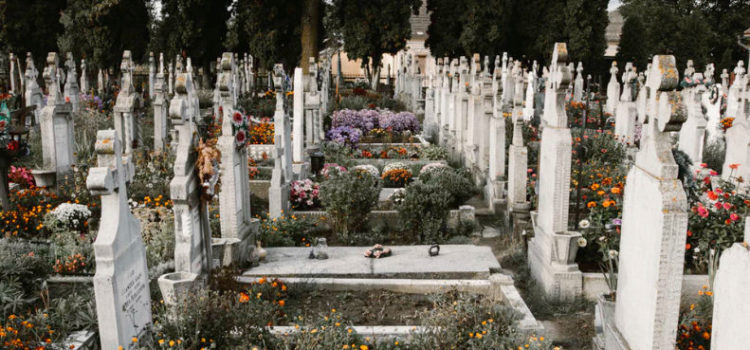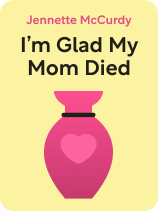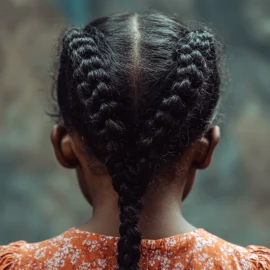

This article is an excerpt from the Shortform book guide to "I'm Glad My Mom Died" by Jennette McCurdy. Shortform has the world's best summaries and analyses of books you should be reading.
Like this article? Sign up for a free trial here.
How did Debra McCurdy’s death happen? What was Jennette McCurdy’s reaction to her mother’s death?
Debra McCurdy died when Jennette McCurdy was 21, leaving her feeling lost and unsure of who she was. In I’m Glad My Mom Died, McCurdy discusses her initial reaction to Debra’s death, as well as the effect of Debra’s death on McCurdy’s acting career.
Keep reading to learn more about the effects of this tremendous death on McCurdy’s life.
Debra’s Death Sends McCurdy Into a Tailspin
Debra McCurdy’s death causes Jennette McCurdy to stop caring about many things and feel angrier about others. She continues drinking and binging and purging. She exercises excessively: running 5-10 miles every other day and 13 miles twice a week. She feels bitter about things like her co-star, Ariana Grande’s, regular absences from the set in pursuit of her singing career. She loses her virginity to a man when she’s drunk just to get it over with, even though she doesn’t really want to have sex with him.
She also realizes that she’s spent her life focusing on her mom—trying to understand her and doing whatever it takes to make her happy—and has never focused on understanding or getting to know herself. She feels lost.
(Shortform note: Psychologists point out that children of narcissists can experience a kind of “double grief” upon the death of the narcissistic parent. They feel the ordinary grief of losing a parent, plus the additional grief of mourning the loss of the healthy, supportive parent-child relationship that they never had. This can cause different reactions in different people, but McCurdy’s response is a common one: anger and acting out as a type of regression to primal-level survival tactics.)
McCurdy Reconsiders Her Acting Career After Debra’s Death
After her mom dies, McCurdy is increasingly going through the motions at work. She hates the show she’s on (Sam & Cat, a spin-off of iCarly) and she hates acting. She agreed to the spin-off because her mom wanted her to do it and because the producers agreed that she could direct an episode. But the date on which she’s supposed to direct keeps getting pushed back until, with very few episodes left to go, it’s pushed off the calendar completely. She feels demoralized.
Later, she finds out that the show is being canceled. A manager tells her it’s because of a sexual harassment claim against one of the producers. McCurdy had her own experiences with this producer. For example, when she was younger, he pressured her to try alcohol for the first time. He also massaged her shoulders and placed his hand on her knee without her consent, and insisted that she wear a bikini for a scene in iCarly even though she felt uncomfortable doing so. Nickelodeon offers McCurdy $300,000 not to talk publicly about her experience with the network. She refuses to take what she considers to be hush money.
After she’s done a couple of seasons of a new show, she decides to take a break from acting. Acting makes her feel much the same way her eating disorder does: like she has no control over her life and is constantly bargaining to be good enough. She wants to take charge of her life, rather than allowing her eating disorder or her acting career to control her.
| The Toll of Child Acting Many child actors experience a similar loss of control as teenagers or adults, often resulting in public breakdowns or acting out. Experts and former child stars say there are a variety of reasons why child acting can take such a mental and emotional toll. Like McCurdy, some child actors are pushed into acting by their parents, who want to live their lives through their child (and who may also be financially dependent on their child’s paycheck). In addition, having a job as a child is hard work. There can be a lot of pressure on child actors, especially those who are starring in a show: They need to learn their lines, work long hours, and live up to other people’s expectations of them—while also going to school. Finally, fame brings public scrutiny. Child actors don’t have a lot of free time or the opportunity to just be kids and make mistakes. On the other hand, psychologists say that if the parents of child actors are able to maintain good boundaries and a sense of normalcy in their child’s life, the child is more likely to succeed later in life. Just as there are many examples of child actors turning to substance abuse or having meltdowns, there are child actors who have gone on to be successful as adult actors, or in other careers. |

———End of Preview———
Like what you just read? Read the rest of the world's best book summary and analysis of Jennette McCurdy's "I'm Glad My Mom Died" at Shortform.
Here's what you'll find in our full I'm Glad My Mom Died summary:
- Former child star Jennette McCurdy's autobiography
- McCurdy's difficult, often traumatic, relationship with her controlling mother
- What it's like to grow up as a child in the spotlight






